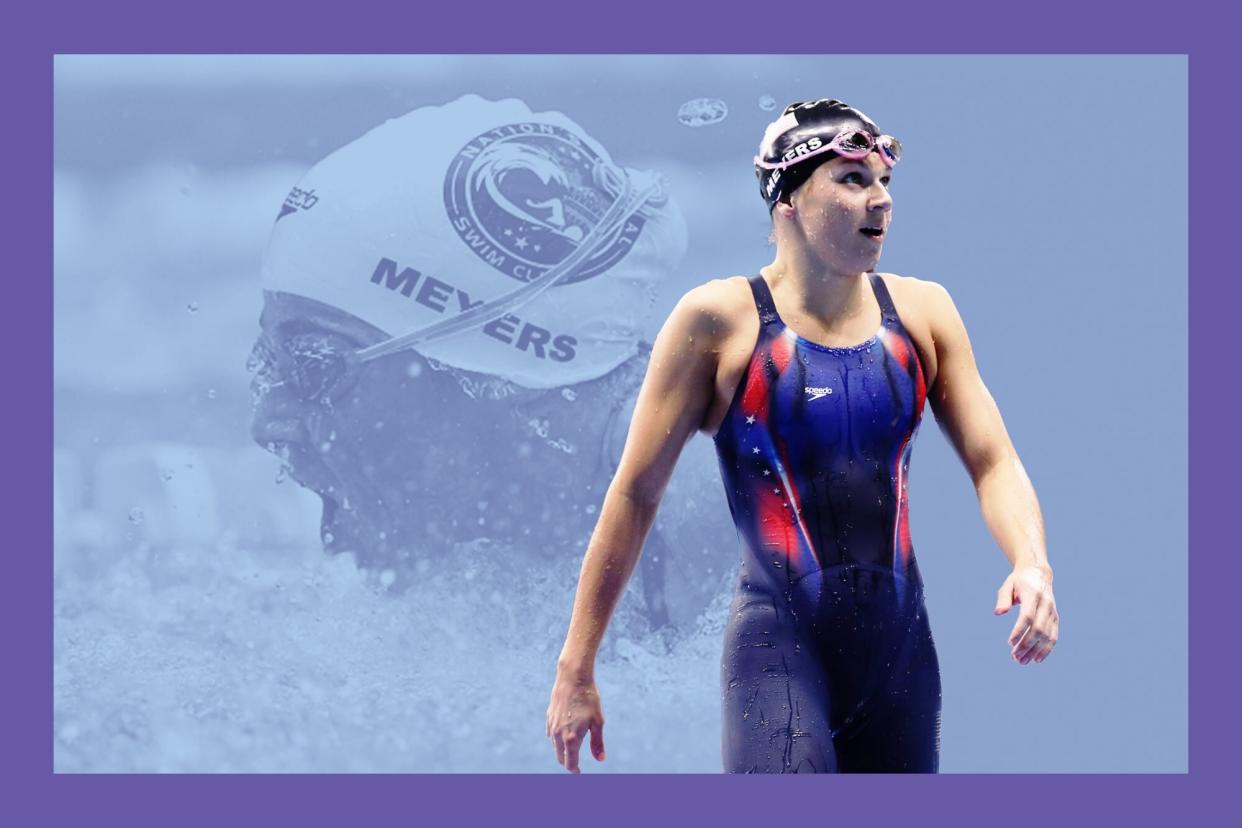Paralympic Swimmer Becca Meyers Has Withdrawn from the Tokyo Games After Being Denied 'Reasonable and Essential' Care

Getty Images
Ahead of next month's Paralympic Games in Tokyo, U.S. swimmer Becca Meyers announced Tuesday that she's withdrawn from the competition, sharing that the United States Olympic & Paralympic Committee has "repeatedly" denied her requests for "reasonable and essential accommodation" to have a care assistant of her choosing, giving her "no choice" but to withdraw.
In statements shared on her Twitter and Instagram, Meyers — who has been deaf since birth and is also blind — said that she had to make the "gut-wrenching decision" to step away from the Games after she was reportedly denied the ability to bring her Personal Care Assistant, mother Maria, to Japan.
"I'm angry, I'm disappointed, but most of all, I'm sad not to be representing my country," Meyers wrote in her Instagram statement, adding that instead of allowing each athlete their own PCA in Tokyo, all 34 Paralympic swimmers — nine of whom are visually impaired — will share the same PCA due to COVID-19 safety concerns. "With Covid, there are new safety measures and limits to non-essential staff in place," she wrote, adding, "rightfully so, but a trusted PCA is essential for me to compete."
Meyers, a six-time Paralympic medalist, was born with Usher syndrome, a condition that impacts both vision and hearing. In an op-ed published Tuesday by USA Today, the 26-year-old athlete said she's "used to being forced to become comfortable in uncomfortable surroundings" — including universal mask-wearing and social distancing due to the COVID-19 pandemic, which inhibits her ability to read lips — but that the Paralympic Games are "supposed to be a haven for athletes with disabilities, the one place where we are able to compete on a level playing field, with all amenities, protections, and support systems in place." (Related: People Are Designing DIY Clear Face Masks for the Deaf and Hard of Hearing)
The USOPC has approved the usage of a PCA for Meyers since 2017. She said the USOPC denied her request "on the basic of COVID-19 restrictions by the Japanese government," which has also barred spectators from the Olympic Games, in an effort to combat the spread of COVID-19 as cases continue to rise, according to BBC. "I strongly believe the reduction in staff was not intended to reduce the number of essential support staff for Paralympians, like PCAs, but to reduce the number of nonessential staff," she wrote Tuesday in USA Today.
Meyers added Tuesday how the mere presence of PCAs allows athletes with disabilities to compete in major events, such as Paralympics. "They help us navigate these foreign venues, from the pool deck, athlete check-in to finding where we can eat. But the biggest support they provide athletes like myself is giving us the ability to trust our surroundings – to feel at home for the short time we're in this new, unfamiliar environment," she explained. (Related: Watch This Visually Impaired Runner Crush Her First Trail Ultramarathon)
Shape reached out to a representative for the U.S. Olympic & Paralympic Committee on Wednesday but did not hear back. In a statement shared to USA Today, the committee said, "The decisions we've made on behalf of the team have not been easy, and we are heartbroken for athletes who are unable to have their previous support resources available," adding, "we are confident in the level of support we will offer Team USA and look forward to providing them a positive athlete experience even in the most unprecedented times."
Meyers has since received an outpouring of support on social media from sports fans, politicians, and disability rights activists. U.S. tennis player Billie Jean King responded on Twitter Wednesday, pleading with the USOPC to "do the right thing."
"The disabled community deserves the respect, accommodation, and modifications they need to succeed in life," wrote King. "This situation is shameful and easily fixable. Becca Meyers deserves better."
Governor Larry Hogan of Maryland, Meyers' home state, echoed those same sentiments in support of Meyers on Twitter. "It is shameful that after earning her rightful place, Becca is being deprived of her ability to compete in Tokyo," tweeted Hogan on Tuesday. "The United States Olympic & Paralympic Committee should immediately reverse its decision."
Meyers also received support from both of Maryland's senators, Chris Van Hollen and Ben Cardin, along with New Hampshire Senator Maggie Hassan and deaf actor Marlee Matlin, who called it "appalling," adding that a pandemic "is NOT a reason to deny [disabled peoples'] right to access." (Related: This Woman Won a Gold Medal at the Paralympics After Being In a Vegetative State)
As for Meyers, she concluded her Instagram statement on Tuesday explaining that she's "speaking up for future generations of Paralympic athletes in hope that they never have to experience the pain I've been through. Enough is enough." The Paralympic Games begin on August 24, and here's hoping Meyers will have the support and accommodations she needs to join her fellow swimmers in Tokyo.

